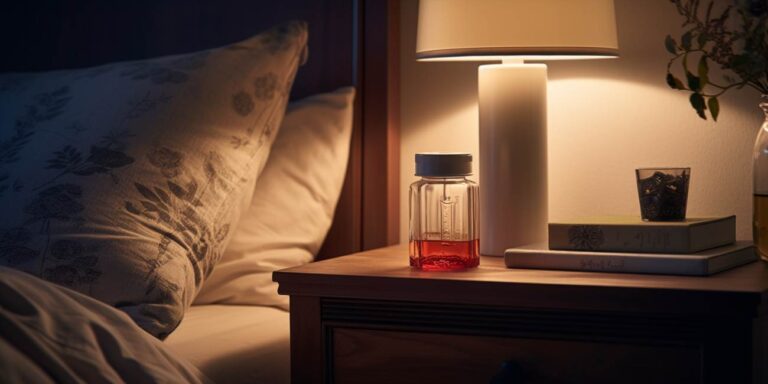If you’ve ever experienced the misery of hayfever, you know how it can turn a beautiful day into an uncomfortable ordeal. But for many hayfever sufferers, the symptoms don’t magically disappear when the sun sets. In fact, hayfever symptoms at night can be particularly troublesome and disrupt your sleep, leaving you feeling exhausted and irritable. In this comprehensive guide, we will delve into the world of hayfever, focusing on the specific challenges it poses during the nighttime hours.
Hayfever: a brief overview
Before we dive into the specifics of hayfever symptoms at night, let’s first understand what hayfever actually is. Hayfever, medically known as allergic rhinitis, is an allergic reaction that occurs when your immune system overreacts to allergens such as pollen, dust mites, or pet dander. These allergens trigger a release of histamines in your body, leading to a range of uncomfortable symptoms.
The prevalence of hayfever
Hayfever is a common condition, affecting millions of people worldwide. While it often strikes during the day when allergen exposure is at its peak, it can also be a nightly nuisance. Understanding the prevalence of hayfever can shed light on the significance of addressing its nighttime symptoms.
Common hayfever symptoms
Hayfever symptoms can vary from person to person, but some of the most common ones include:
- Nasal congestion
- Runny or itchy nose
- Sneezing
- Watery and itchy eyes
- Postnasal drip
- Coughing
Hayfever triggers
Understanding what triggers your hayfever is crucial in managing its symptoms. Common hayfever triggers include:
- Pollen from trees, grasses, and weeds
- Dust mites
- Mold spores
- Pet dander
Why do hayfever symptoms worsen at night?
Hayfever symptoms can intensify at night for several reasons:
1. pollen levels
Pollen levels tend to decrease in the evening as temperatures drop. This causes pollen to settle closer to the ground, increasing your exposure when you’re indoors with poor ventilation.
2. indoor allergens
While you may think you’re safe from outdoor allergens when you’re indoors, that’s not always the case. Dust mites and mold can thrive in indoor environments and trigger hayfever symptoms, especially at night.
3. sleep position
During the night, you’re in a horizontal position, which can lead to mucus pooling in your nasal passages and throat. This can make you more aware of hayfever symptoms like congestion and postnasal drip.
Managing hayfever symptoms at night
Now that we understand why hayfever symptoms can be worse at night, let’s explore some strategies for managing and alleviating these nighttime nuisances.
1. keep windows closed
To minimize exposure to outdoor allergens like pollen, keep your windows closed at night. You can also use air purifiers with HEPA filters to trap allergens indoors.
2. clean bedding regularly
Dust mites can thrive in bedding, so wash your sheets and pillowcases frequently in hot water. Using allergen-proof covers on your pillows and mattress can also help.
3. shower before bed
Showering before bedtime can remove allergens from your hair and skin, reducing the risk of bringing them into your bed.
Frequently asked questions (faqs)
Q1: can hayfever symptoms at night be as severe as daytime symptoms?
A1: Yes, hayfever symptoms can be just as severe at night, and they can disrupt your sleep, leading to fatigue during the day.
Q2: are there any over-the-counter remedies for hayfever symptoms at night?
A2: Yes, you can try antihistamines or decongestants, but it’s essential to consult with a healthcare professional before using any medication.
Q3: are there long-term solutions for hayfever sufferers?
A3: Yes, allergen immunotherapy, also known as allergy shots, can provide long-term relief for hayfever sufferers by desensitizing them to allergens.
Q4: can hayfever symptoms at night be a sign of a more severe condition?
A4: While hayfever symptoms at night are common, they can sometimes be a sign of a more severe allergic condition. It’s advisable to consult with an allergist for a proper evaluation.
Conclusion
Hayfever symptoms at night can be a challenging aspect of dealing with this common allergy. Understanding the causes and triggers of nighttime symptoms is the first step in effectively managing them. By taking proactive measures to minimize allergen exposure and seeking appropriate treatment, you can enjoy more restful nights and brighter, symptom-free days.
See also:





